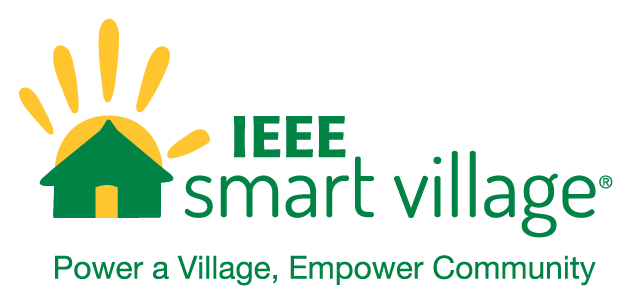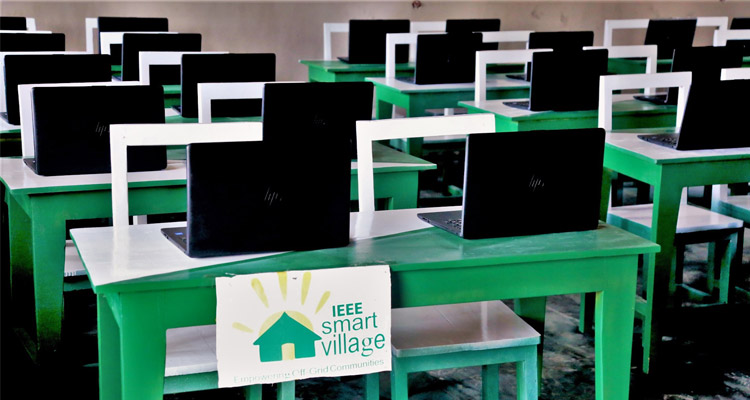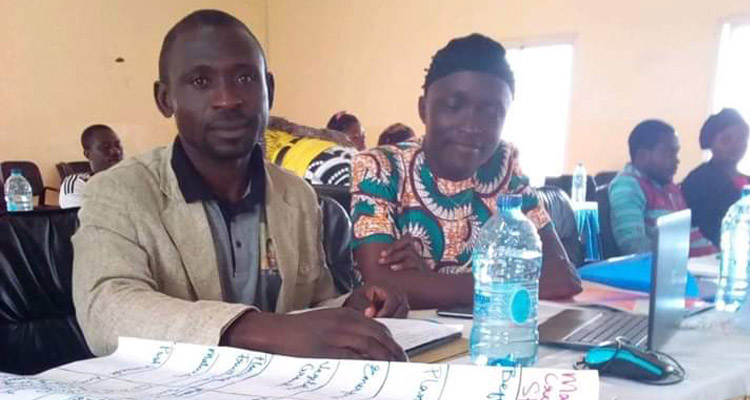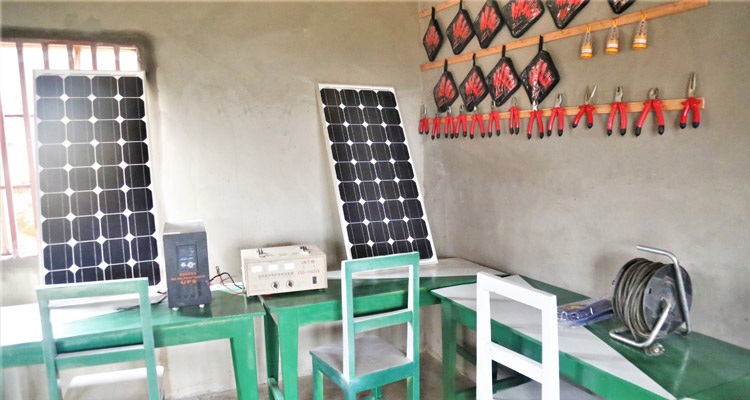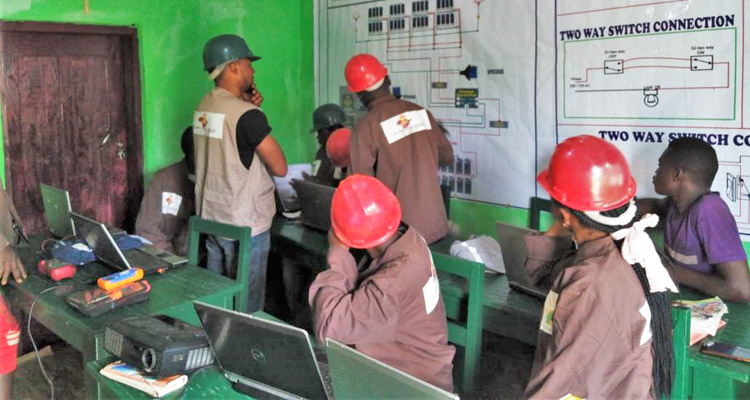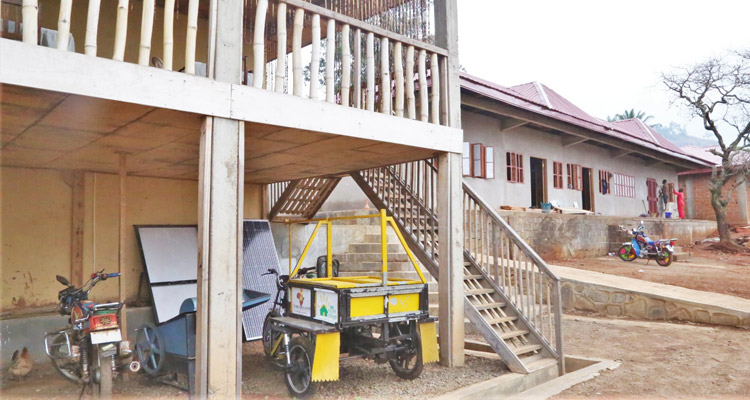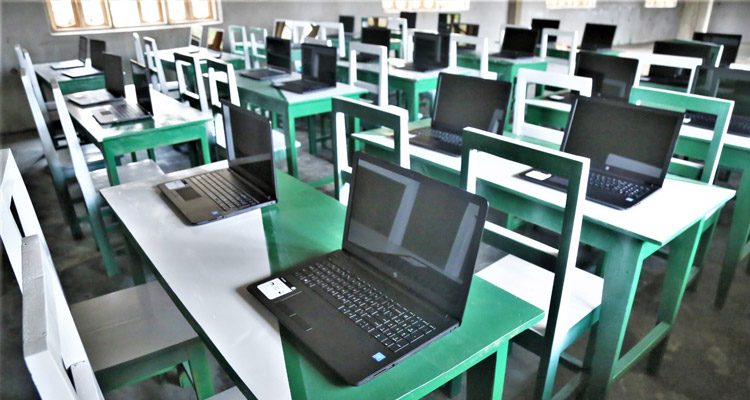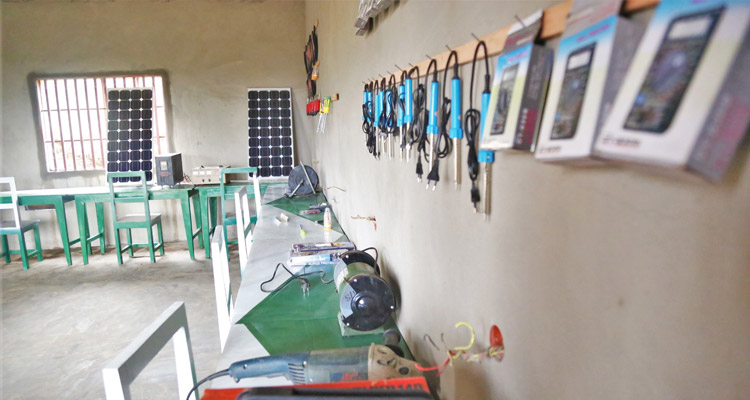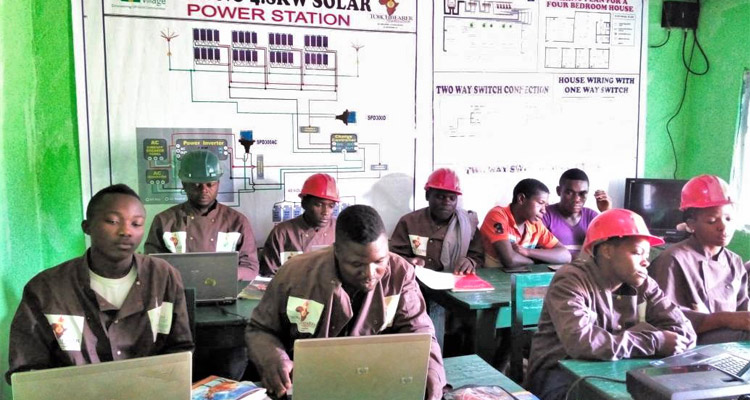Igniting Africa- Cameroon
The backbone of the Cameroon economy is agriculture. Currently only half of the country’s population of 23 million inhabitants have access to electricity, and where electricity is available, the supply is very unreliable. Farming is the primary economic activity in these remote communities situated along riverbanks, which have access to the national power grid. Micro- entrepreneurs who desperately require electricity for their businesses are forced to buy diesel generators.
The “Igniting Africa” (IA) rural electrification program of The Torchbearer Foundation is currently providing electricity for over 10,000 [VERIFY WITH QUARTERLY REPORTS] people in three villages for home lighting, sewing, computer training, typing, printing, refrigeration, and other micro-businesses. The Torchbearer Foundation is establishing a tuition-free work-study school program to serve under-privileged rural Cameroonian youth. Students are selected from poor village communities and will be trained for two years and deployed back to their communities with seed funding for start-ups in their field of specialty.
In 2018, the ISV Education Committee awarded The Torchbearer Foundation $50,000 USD with the support of IEEE Power & Energy Society to expand the vocational training program with productive disciplines including sustainable agriculture, renewable energy, entrepreneurship and leadership using a curriculum that is problem-specific drawn from the needs of the local community.
The school will have functioning workshops in the fabrication and modification of machinery for the processing of agricultural products to add value to locally grown crops. This will include activities such as the processing of potatoes and cassava into flour, the extraction of peanut oil, and palm oil milling. Other useful skills will also be taught regarding energy usage and transformation technologies. The school will also engage in training for sustainable animal farming and crop production to enable the students learn by doing and earning. These activities will serve as a practical learning ground for the students and an income source that can be re-invested to help in running the institution and ultimately achieve self-sustainability.
COMMUNITY IMPACT DATA:
| Population to be reached | 2000 |
| Desires expressed by local community | Increased adult literacy and vocational skills, youth job opportunities, training in modern agriculture, affordable electricity & water, improved transportation and healthcare networks |
| Number of schools | 1 elementary, 2 primary, 1 secondary |
| Numbers of students per school | 300 |
| Immediate needs of schools | Electricity, ICT classes, textbooks, water, sanitation, internet access, vocational training |
| Adult literacy rate | Men: 40% | Women: 15% |
| Jobs to be created | Tourism & services, IT outsourcing, healthcare, social enterprises |
| Technologies & education provided | After-school education programs in English, digital literacy, social skills; young women’s vocational training; IT skills & English for youths and adults; women’s empowerment & hygiene |
